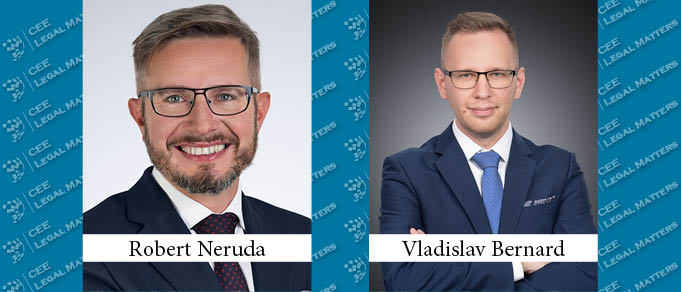At the end of 2020, the Chairman of the Czech Competition Authority (CCA) was replaced. Petr Rafaj, who had been in the position for more than 11 years and who had been linked to several controversial cases, resigned. The government, through a tender procedure, selected his successor: Petr Mlsna. The aim of the 42-year-old lawyer, who has extensive experience working in senior government positions, is to return the good reputation of the CCA. Mlsna emphasizes strengthening the importance of competition law as part of the CCA’s competencies.
This is a welcome step. In recent years, the CCA’s main visible priority has been the supervision of public procurement. There has also been a change in the Vice-Chairman of the CCA responsible for competition policy. Instead of Hynek Brom, who had been in this position since 2015, Kamil Nejezchleb, a lawyer, economist, and long-time employee of the CCA, has been appointed.
We can already assess the practical consequences of these personnel changes. How are competition law enforcement and competition policy changing under the CCA, which celebrates its 30th anniversary in 2021?
From the very beginning of Mlsna’s tenure, the CCA carries more interventions, is more visible in the mass media, and its top management attends professional conferences and seminars. Also, the CCA publishes more press releases, informs more about first instance decisions, and makes it easier for third parties to access these decisions. This is particularly important for entities considering bringing an action for damages.
Private enforcement of competition law is still undeveloped in the Czech Republic. So far, there are only isolated cases. There are probably several reasons for this situation, which range from the unestablished litigation tradition in this area, through the inexperience of the courts, to the high financial costs of conducting such litigations.
Under Rafaj’s lead, the CCA was rather skeptical about supporting private enforcement of competition law. This was probably out of fear of jeopardizing public enforcement and reducing the efficiency of the leniency program or the settlement institute. Therefore, the new management’s activity in this field has caught our attention. Mlsna has launched an initiative to alert contracting authorities that they are obliged to enforce damages caused by anti-competitive conduct. Moreover, if the CCA issues a final decision on a cartel, it will approach an aggrieved company to draw its attention to the possibility, or obligation, to bring an action for damages. It remains to be seen whether this initiative will lead to greater development of the private enforcement of competition law.
After several years, the CCA has returned to conducting sector inquiries. This spring, the CCA launched one focused on the distribution of pharmaceuticals – on the grounds that it had received many complaints in this area, which raise concerns about the proper functioning of the market. However, it is difficult to predict at this stage whether the CCA will subsequently start investigating individual manufacturers and/or distributors of medicinal products.
The CCA is also toughening up on the sanctions it imposes. For the first time in the history of the CCA, the chairman confirmed a fine amounting to the statutory limit of 10 percent of the undertaking’s turnover (for resale price maintenance). Also, the CCA imposed a sanction consisting of a ban on the performance of public contracts (so-called blacklisting) for the first time, in a bid-rigging case. Speaking of bid-rigging, although the CCA normally calculates fines from the value of the public contract in question, in some cases it does not hesitate to impose a fine from the whole turnover of the undertaking. Mlsna has declared that cartels are criminal and, as such, must be punished severely.
It is therefore apparent that the changes in the CCA’s management have led to a strengthening of the importance of competition policy and changes in its priorities. Only time will tell whether these changes will lead to more efficient enforcement of competition law, whether we will see more cartels or abuses of dominance uncovered, whether anti-competitive conduct will be severely punished, or whether private enforcement of competition law will be used more. Our guess is that we will see these changes under Mlsna’s lead.
By Robert Neruda, Partner, and Vladislav Bernard, Associate, Havel & Partners
This Article was originally published in Issue 8.9 of the CEE Legal Matters Magazine. If you would like to receive a hard copy of the magazine, you can subscribe here.



